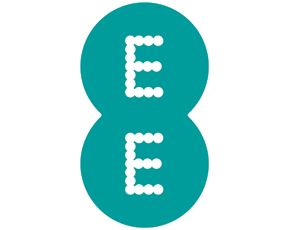Everything Everywhere is set to launch high-speed 4G mobile networking in the UK with download speeds at a maximum of up to 40Mbps.
Everything Everywhere – now rebranded "EE" – will launch the service before the end of the year, but has not disclosed the tariff.

EE will test its 4G coverage in London, Birmingham, Cardiff and Bristol in the coming weeks.
EE said 16 cities in the UK will be able to access the super-fast mobile broadband before Christmas.
The additional cities which will receive the service by the end of the year are Edinburgh, Belfast, Leeds, Sheffield, Manchester, Liverpool, Glasgow, Newcastle, Southampton, Hull, Nottingham and Derby.
EE, the joint venture between Orange and T-Mobile claims it will roll out 4G to 70% of the UK in 2013.
This will still leave around 18 million without 4G. EE said it will ensure 98% of the UK will have access to 4G by the end of 2014.
"For a long time the UK has been labelled the laggard for 4G, being behind the likes of Angola, Azerbaijan and Uzbekistan," said Matthew Howett, lead regulatory telecoms analyst at Ovum.
"But Britain may now be leading in terms of 4G coverage, as this is the most ambitious launch we've seen so far."
In August, Ofcom permitted Everything Everywhere to use its existing spectrum allocation for 4G mobile services in the UK.
This was received with disappointment and anger from competitive operators, O2 and Vodafone, who complained of an unfair advantage.
"This is what this country really needs because we're so advanced in our use of internet and smartphones," EE chief technology officer, Fotis Karonis, told Computer Weekly.
"Everything Everywhere was liberated through the EU process, we went by the book and worked very hard on the ecosystem."
EE has invested £1.5bn into network modernisation to enable LTE services, as well as improvements to existing 2G and 3G services.
"The UK has been held back by not being able to launch – it's already a mass market in the United States and Korea and it is vital that the UK has a 4G infrastructure," added David Salam, director of network strategies.
"I expect other operators to follow in our footsteps next year. It took a lot of risk investing up front, if they do the same they could also launch early. It's their choice."
Mobile operators O2 and Vodafone threatened to take legal action and delay the 4G roll-out, but it was reported prior to EE's press conference that these proceedings had been dropped.
Court action would have affected the expected October launch of EE's 4G service. The legal ramifications could have set back the roll-out of UK 4G services indefinitely.
EE announced five handsets will be compatible with the next-generation mobile coverage. Samsung, HTC, Nokia and Huawei have all provided LTE devices which will be able to access 4G in the coming months.
Karonis said the service will open opportunities for businesses to access a quality fast service, while also facilitating interactivity in the cloud, advances in security, real time responsiveness, as well as faster experiences on enterprise software products such as SAP and salesforce.com.
"4G will have characteristics of an IT network, with reinforced technology providing fourth-generation security for consumer transactions, mobile payments, the cloud and M2M functionalities," Karonis said.
Under the rebranding of Everything Everywhere to EE, customers will see the network signal on their devices change from 'Orange…T-Mobile' to 'EE' over the following months.
While EE is covering the 4G service, Orange and T-Mobile will continue as brands to stand alongside EE. Orange and T-Mobile will offer their traditional services while sitting on the single network. The existing 700 Orange and T-Mobile stores in the UK will change to the yellow and aqua EE branding.





